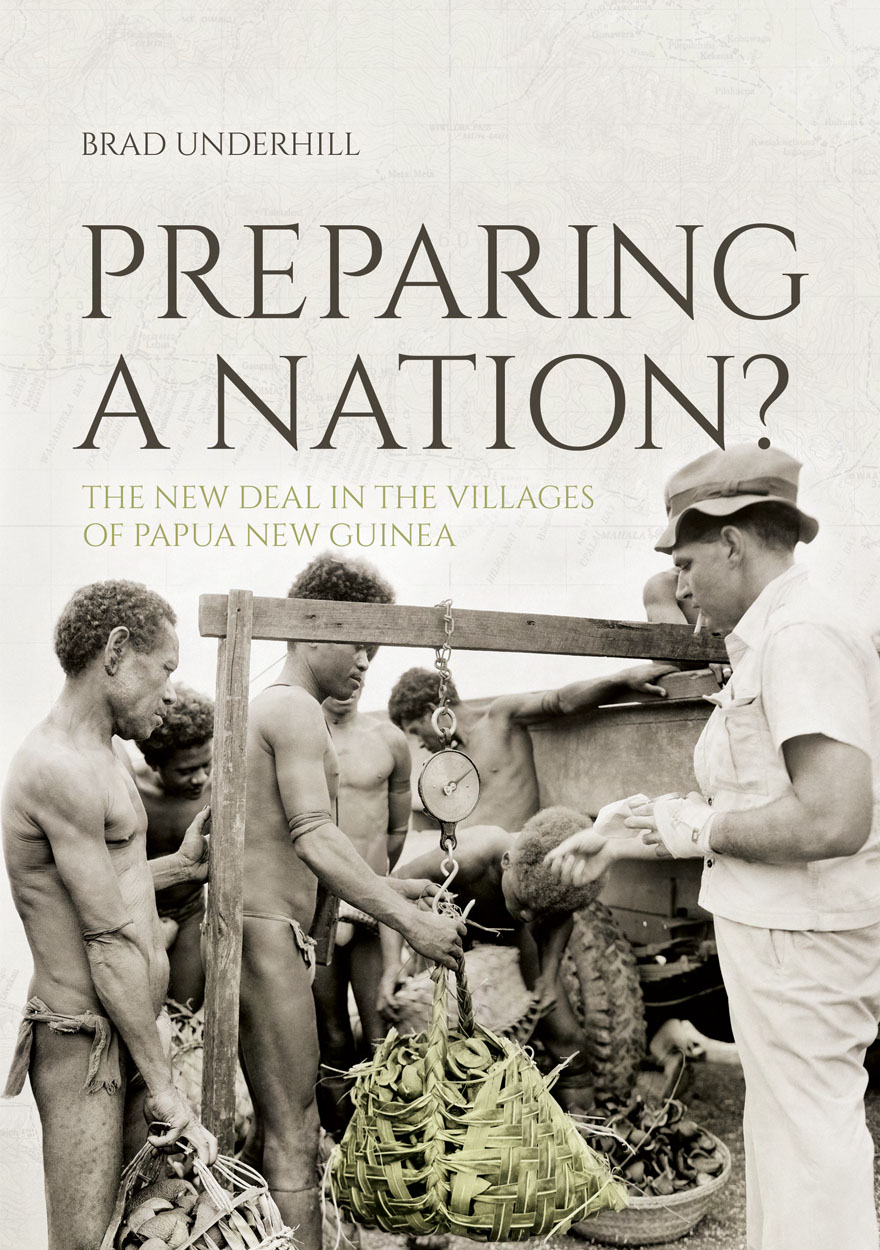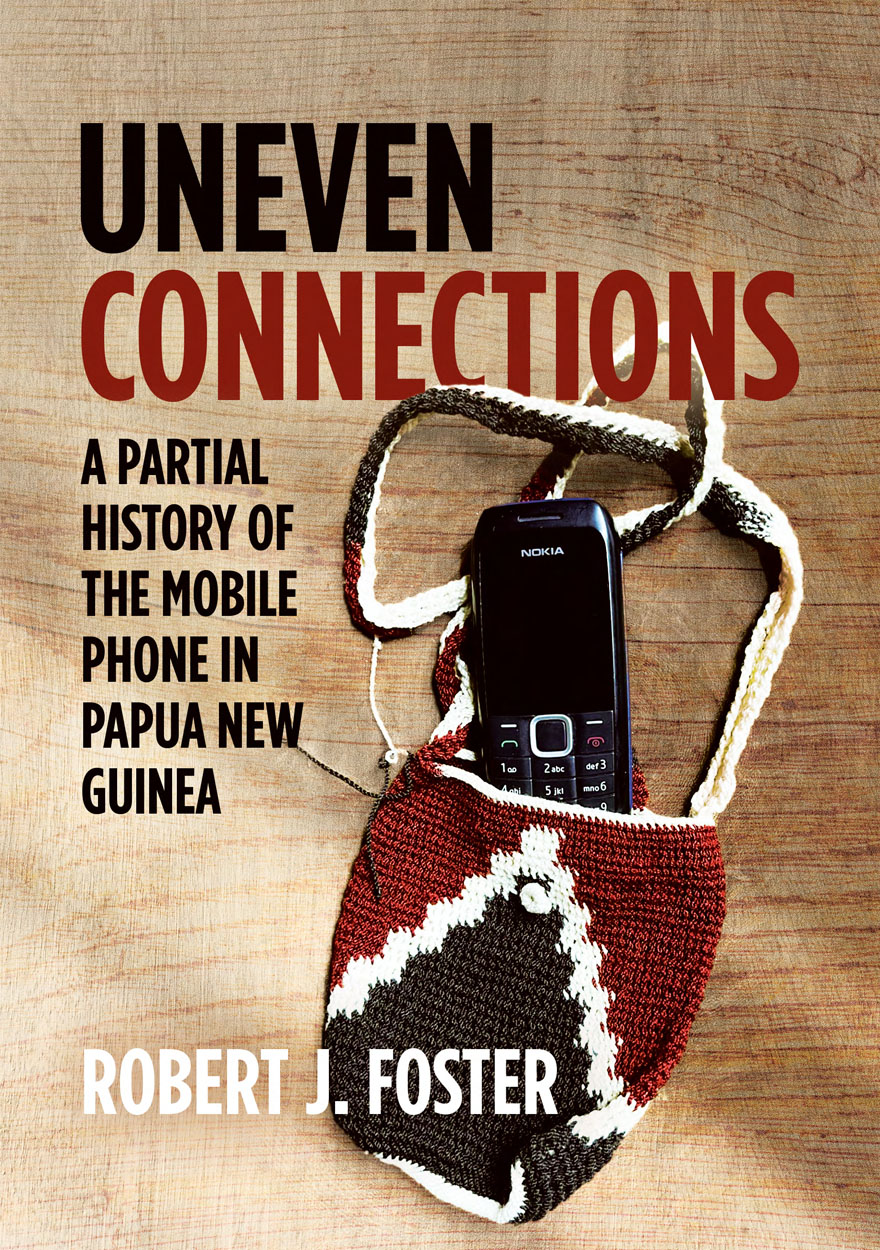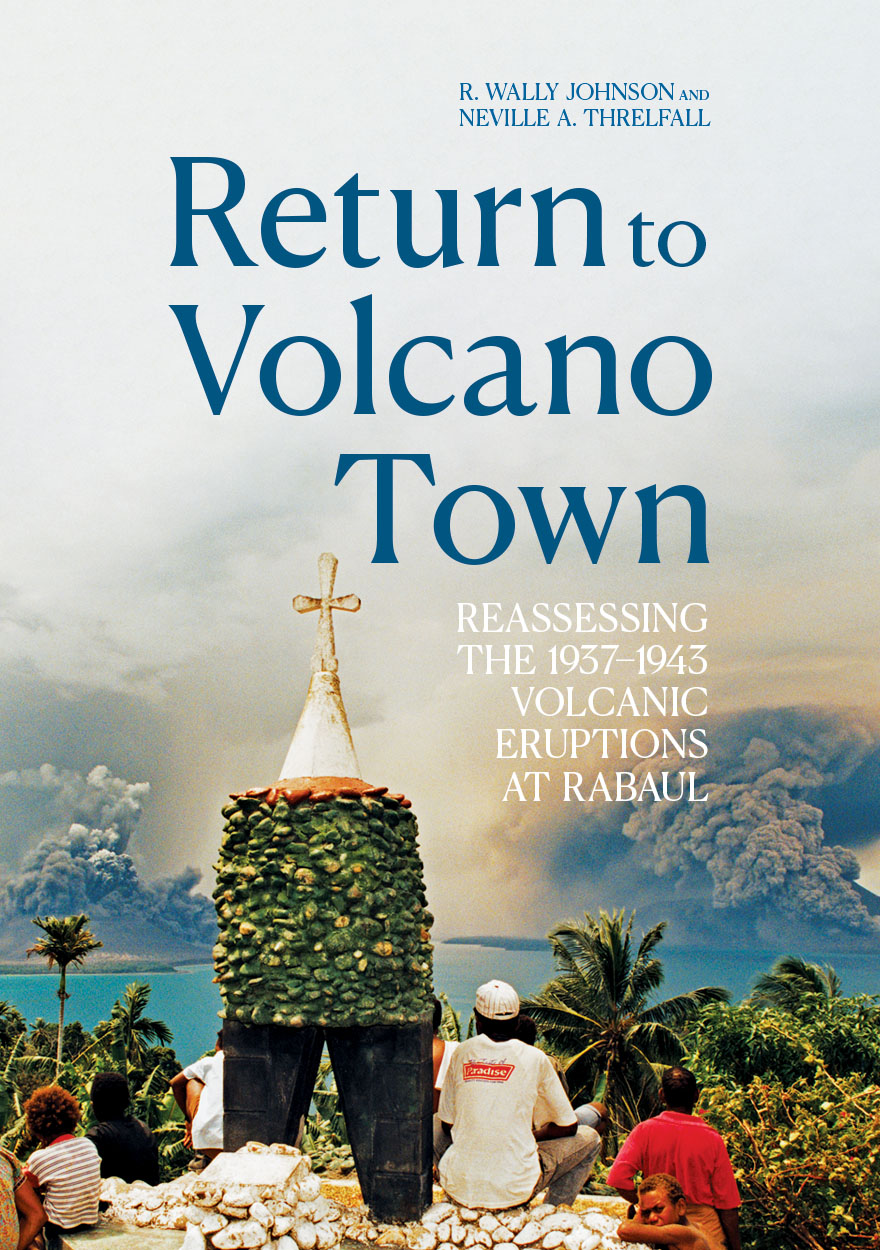Search titles
Displaying results 1 to 10 of 87.

Ink and Land »
Documenting Factionalism around a Prospective Mine in Papua New Guinea
Authored by: Willem Church
Publication date: 2025
Ink and Land is an ethnographic account of political and legal struggles over landownership in Papua New Guinea, in which competing factions seek recognition as customary landowners of Wafi-Golpu, a major prospective copper-gold mine. Drawing on extensive archival research, oral histories, court documents and fifteen months of fieldwork, the book examines how different groups attempt to harness resource extraction for their benefit and how, in doing so, they reshape their social worlds through the medium of affidavits, court declarations and incorporation certificates. To analyse this process, the book advances the concept of antagonistic documentality—a form of conflict in which parties engage in conflicting world-building projects through and about documents and, in doing so, create an order of paper that outlasts the disputes themselves. Through this detailed case study, Ink and Land reveals how legal and bureaucratic battles over resource extraction in Papua New Guinea formalise factionalism, consolidate elite control over new sources of wealth, and redefine the nature of groups and landownership. By focusing on conflict over documents as a process of social transformation, the book offers fresh insights into the politics of land, law and resource extraction in the contemporary Pacific.
Coming soon
Notify me
Struggle, Reform, Boom and Bust »
An Economic History of Papua New Guinea since Independence
Authored by: Stephen Howes, Martin Davies, Rohan Fox, Maholopa Laveil, Manoj K. Pandey, Kelly Samof, Dek Joe Sum
Publication date: 2025
Since Papua New Guinea’s independence in 1975, economic growth has been slow but volatile, with major changes in economic structure and policies, as well as in politics and governance.
This economic history, written to commemorate the fiftieth year of independence and the first to be produced in some 15 years, divides the half century since independence into four periods: the relative stability but also early struggles of the seventies and eighties; the crises and reforms of the nineties; the boom of the 2000s; and the quiet bust of the 2010s. Two chapters cover each period’s major economic, policy, institutional and political developments. The final three chapters provide an overall assessment of economic performance and policies since independence and link them with its politics and institutions.
The book combines painstaking documentation with original analysis to reveal both the strengths and weaknesses of the PNG economy, and theorises that the country’s hyper-politics and insecurity have combined to produce, and are reinforced by, a weak but stable state, and low and increasingly resource-dependent growth.
Data-driven, frank, insightful and engaging, Struggle, Reform, Boom and Bust is written by an expert team of economists from the University of Papua New Guinea and The Australian National University under the leadership of Professor Stephen Howes, Director of the ANU Development Policy Centre. It is an essential resource for anyone interested in the economy of Papua New Guinea, as well as an important contribution to the literature on the challenges and institutional determinants of post-colonial development.
Coming soon
Notify me
Preparing a Nation? »
The New Deal in the Villages of Papua New Guinea
Authored by: Brad Underhill
Publication date: August 2024
Preparing a Nation?, based on extensive archival research, addresses perennial questions of Australian colonialism in Papua New Guinea. To what extent did Australia prepare Papua New Guinea for independence? And what were the policies and the ideologies behind colonial development, implemented after World War II? A key innovation of this book is to take these questions from policy desks in Canberra and Port Moresby to the villages of four administrative areas: Chimbu, Milne Bay, Sepik and New Hanover. How successful were Australian colonial planners in designing and implementing programs that could ameliorate the potential harm of market capitalism and develop ‘new’ socioeconomic structures that would combine a disparate people into an ‘imagined community’, capable of becoming an independent nation-state in the far distant future? Colonial intention is contrasted with Indigenous experience. Bradley Underhill explores an Australian governmental tendency to prioritise colonial control over Indigenous autonomy in circumstances where subjugated people do not necessarily fit within an expected narrative of compliant or westernised ‘native’.
‘I expect it will become the standard reference for its subject, which covers a pivotal aspect of Australia’s colonial administration.’
—Bill Gammage

Capital Punishment, Clemency and Colonialism in Papua New Guinea, 1954–65 »
Authored by: Murray Chisholm
Publication date: July 2024
This study builds on a close examination of an archive of files that advised the Australian Commonwealth Executive on Papua New Guineans found guilty of capital offences in PNG between 1954 and 1965. These files provide telling insight into conceptions held by officials at different stages of the justice process into justice, savagery and civilisation, and colonialism and Australia’s role in the world. The particular combination of idealism and self-interest, liberalism and paternalism, and justice and authoritarianism axiomatic to Australian colonialism becomes apparent and enables discussion of Australia’s administration of PNG in the lead-up to the acceptance of independence as an immediate policy goal. The files show Australia gathering the authority to grant mercy into the hands of the Commonwealth and then devolving it back to the territories. In these transitions, the capital case review files show the trajectory of Australian colonialism during a period when the administration was unsure of the duration and nature of its future relationship with PNG.

The Chinese in Papua New Guinea »
Past, Present and Future
Publication date: May 2024
Papua New Guinean, Chinese and Australian people have long been entangled in the creation of complex histories and political debates concerning the similarities and differences of each group. These debates are fundamental to understanding how a sense of national unity in Papua New Guinea is formed, as well as within analyses of the wider world of strategic power dynamics and influence. The Chinese in Papua New Guinea offers a comprehensive and nuanced examination of the Chinese in Papua New Guinea. Chinese, Papua New Guinean and Australian interactions are analysed in the context of ongoing shifts in colonial power, increased regional engagement with China, and current political instabilities across the Indo-Pacific region. The many ways the Chinese have been defined as actors in PNG’s history and politics are analysed against the backdrop of a rapidly changing global order. The complexity of Chinese experiences within Papua New Guinea is given expression, here, with chapters that stress political and historical heterogeneity, the importance of language for understanding Chinese social relations, and that articulate rich personal experiences of race relations.

Forty Years in the South Seas »
Archaeological Perspectives on the Human History of Papua New Guinea and the Western Pacific Region
Publication date: May 2024
“This edited volume of invited chapters honours the four decades of fundamental research by archaeologist Glenn Summerhayes into the human prehistory of the islands of the western Pacific, especially New Guinea and its offshore islands. This area helped to shape and direct many ancient dispersal events associated with Homo sapiens, initially from Africa more than 50,000 years ago, through the lower latitudes of Asia, into Australia, New Guinea, the Bismarck Archipelago, and possibly the Solomon Islands.
Around 3000 years ago, coastal regions of northern and eastern New Guinea, and the islands of Melanesia beyond, played a major role in the Oceanic migrations of Austronesian-speaking peoples from southern China and Southeast Asia, migrations that have recently attained new levels of genetic complexity through the analysis of ancient DNA from human remains. For the first time, humans of both Southeast Asian and New Guinea/Bismarck genetic origin reached the islands of Remote Oceania, beyond the Solomons.
Many of the chapters in this book deal with archaeological aspects of this Austronesian maritime expansion (which never seriously impacted the populations of the New Guinea Highlands), especially as revealed through the analysis of Lapita pottery and associated artefacts. Other chapters offer archaeological perspectives on trade and exchange, and on related topics that extend into the ethnographic era.
The research of Glenn Summerhayes stands centrally amongst all these offerings, ranging from the discovery of some of the oldest traces of Pleistocene human settlement in Papua New Guinea to documentation of the remarkable phenomenon of Lapita expansion through Melanesia into western Polynesia around 3000 years ago. This volume is a fitting celebration of a remarkable career in western Pacific archaeology and population history.”
— Emeritus Professor Peter Bellwood, The Australian National University

Uneven Connections »
A Partial History of the Mobile Phone in Papua New Guinea
Authored by: Robert J. Foster
Publication date: March 2024
In the first years of the 21st century, economic liberalisation began to transform telecommunications services throughout the Pacific Islands. Government regulators, corporate executives and everyday consumers hopefully imagined that opening mobile phone markets to competition would result in greater access, lower costs and accelerated development.
Uneven Connections examines the ways in which liberalisation took hold in Papua New Guinea (PNG) when a unit of the Caribbean-based mobile network operator Digicel Group Ltd. seized the opportunity to compete with the state-sponsored incumbent. The book highlights how mobile phones entered the lives of urban and rural Papua New Guineans after Digicel’s arrival in 2007. In so doing, it describes a moral economy in which companies, consumers and state agents continually negotiate who owes what to whom. In what ways have these various actors invented and negotiated new forms of both freedom and constraint?
Uneven Connections advances understanding of how a so-called digital revolution in PNG unfolded, resulting in outcomes that often confounded the expectations of policy makers and ordinary citizens alike. It assesses the extent to which some of the promises of this revolution have been redeemed and identifies the challenges faced by companies, consumers and state agents in establishing and experiencing novel forms of uneven connectivity. The book provides a short and selective history of mobile phones in PNG, ending with the sale of Digicel’s Pacific operations to the Australian company Telstra in 2022.

Grassroots Law in Papua New Guinea »
Edited by: Melissa Demian
Publication date: December 2023
The introduction of village courts in Papua New Guinea in 1975 was an ambitious experiment in providing semi-formal legal access to the country’s overwhelmingly rural population. Nearly 50 years later, the enthusiastic adoption of these courts has had a number of ramifications, some of them unanticipated. Arguably, the village courts have developed and are working exactly as they were supposed to do, adapted by local communities to modes and styles consistent with their own dispute management sensibilities. But with little in the way of state oversight or support, most village courts have become, of necessity, nearly autonomous.
Village courts have also become the blueprint for other modes of dispute management. They overlap with other sources of authority, so the line between what does and does not constitute a ‘court’ is now indistinct in many parts of the country. Rather than casting this issue as a problem for legal development, the contributors to Grassroots Law in Papua New Guinea ask how, under conditions of state withdrawal, people seek to retain an understanding of law that holds out some promise of either keeping the attention of the state or reproducing the state’s authority.

Return to Volcano Town »
Reassessing the 1937–1943 Volcanic Eruptions at Rabaul
Authored by: R. Wally Johnson, Neville A. Threlfall
Publication date: October 2023
Wally Johnson and Neville Threlfall re-examine the explosive volcanic eruptions that in 1937–43 killed more than 500 people in the Rabaul area of East New Britain, Papua New Guinea. They reassess this disaster in light of the prodigious amount of new scientific and disaster-management work that has been undertaken there since about 1971, when strong tectonic earthquakes shook the area. Comparisons are made in particular with volcanic eruptions in 1994–2014, when half of Rabaul town was destroyed and then abandoned.
A striking feature of historical eruptive periods at Rabaul is the near‑simultaneous activity at Vulcan and Tavurvur volcanoes, on either side of Rabaul Harbour. Such rare ‘twin’ eruptions are interpreted to be the result of a common magma reservoir beneath the harbour. This interpretation has implications for ongoing hazard and risk assessments and for volcano monitoring in the area.

Unsung Land, Aspiring Nation »
Journeys in Bougainville
Authored by: Gordon Peake
Publication date: December 2022
In 2016, Gordon Peake answers a job advertisement for a role with the government of the Autonomous Region of Bougainville, a collection of islands on the eastern fringe of Papua New Guinea looking to strike out as a country of its own.
In his day job he sees at first hand the challenges of trying to stand up new government systems. Away from the office he travels with former rebels, follows an anthropologist’s ghost and visits landmarks from the region’s conflict. In 2019, he witnesses joy and euphoria as the people of Bougainville vote in a referendum on their future.
Out of these encounters emerges an unforgettable portrait of this potential nation-in-waiting.
Blending narrative history, travelogue and personal reminiscences, Unsung Land, Aspiring Nation is an engaging memoir as well as an insightful meditation on the realities of nation-making and international development.
‘Heartfelt and honest. This book is an insightful read and a valuable addition to scholarship on Bougainville’s journey to peace.’
— Joseph Nobetau, former Chief Secretary to the Autonomous Bougainville Government
‘An excellent piece of engaged travel writing. With first-hand observation and curiosity, Gordon has produced a deeply informed, compelling and evocative account of war, survival and nation-building in what may become the world’s newest country.’
— Tom Bamforth, author of The Rising Tide: Among the Islands and Atolls of the Pacific Ocean
Unsung Land, Aspiring Nation is also available as an audiobook.



